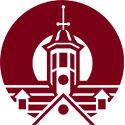Omohundro Institute of Early American History and Culture
 Leading Early American Scholarship Since 1943 | |
| Established | 1943 |
|---|---|
| Chairman | Barbara Oberg, Papers of Thomas Jefferson, Princeton University, emertis (Executive Board) Alan S. Taylor, University of Virginia (Council) |
| Director | Karin Wulf |
| Staff | 34 |
| Address | 400 Landrum Drive Williamsburg, Virginia 23185 |
| Location | |
| Website | http://oieahc.wm.edu/ |
The Omohundro Institute of Early American History and Culture (OI) is the oldest organization in the United States exclusively dedicated to advancing the study, research, and publication of scholarship bearing on the history and culture of early America, broadly construed, from circa 1450 to 1820. Their scope of inquiry includes North America and related histories of the Caribbean, Latin America, Europe, and Africa. Since 1943 the Institute has published the William and Mary Quarterly and books, and sponsored conferences and fellowships.
The College of William & Mary and the Colonial Williamsburg Foundation founded the Institute of Early American History and Culture in 1943. The College continues to jointly sponsor its work. In 1996, the name Omohundro was added to the Institute’s name in recognition of a generous gift from the late Mr. and Mrs. Malvern H. Omohundro, Jr.
Publications[]
Books[]
The Institute publishes a select number of books each year on topics pertaining to the histories and cultures of North America from circa 1450 to 1820, including related developments in the British Isles, Europe, West Africa, and the Caribbean. Since the first book appeared in print in 1947, the OI has published 233 titles, which have won a total of 174 awards.
The Institute partners with the University of North Carolina Press in publishing its titles, and UNC Press also distributes the OI's books.
William and Mary Quarterly[]
The William and Mary Quarterly is an academic journal with a focus on early American history and culture. It ranges chronologically from Old World-New World contacts to about 1820. Geographically, it focuses on North America from New France and the Spanish-American borderlands to British America and the Caribbean and extends to Europe and West Africa. Although grounded in history, it welcomes works from all disciplines (for example, literature, law, political science, anthropology, archaeology, material culture, cultural studies) bearing on the early American period. Currently in its Third Series, the Quarterly is published in January, April, July, and October. The journal originated in 1892, making it one of the oldest scholarly journals in the United States.
Digital publications[]
In addition to a regular blog (Uncommon Sense), the OI maintains both an online feed of blogs about early American scholarship and (Early America Online aka "The Octo"), an up-to-date listing of conferences and events of interest to the Early Americanist community (The Map) and a current listing of fellowships and grants available for research in the field (The List).
The OI also publishes the OI Reader, which features a digital edition of the William and Mary Quarterly as well as additional digital projects.
Fellowships[]

All OI fellowship applicants are evaluated by outside committees of scholars who volunteer their time and expertise. The following scholarships are offered:
- Omohundro Institute-NEH Postdoctoral Research Fellowship
- Lemon Project Postdoctoral Fellowship
- Scholars' Workshop
- Georgian Papers Programme Fellowship
- Jamestown Rediscovery-Omohundro Institute Short-term Fellowship
- OI-Folger Institute Short-term Fellowship
- Lapidus-OIEAHC Fellowship
Events[]
Most OI events are open to the public; costs to the participant vary.
Annual conferences[]
The OI offers an annual conference in June each year. The location varies each year in order to accommodate a wide range of scholars. Panels and papers are chosen by an external committee. The committee typically represents a large variety of institutions and disciplines and is formed by members from the host institution. Graduate students, junior, mid-career and senior scholars are all invited to submit proposals via a Call for Papers; all levels of career achievement are likewise represented on the final program.
Topical conferences[]
The OI also typically offers one topically-themed conference each year, usually in the fall. The location varies. An organizing theme or topic is proposed by a group of scholars who then form a program committee and issue a Call for Papers. The number of papers and panels offered is typically smaller than at the annual conference, likewise the overall number of participants.
THis Camp[]
THis Camp (or That History Camp) sessions are now offered at every OI conference. The goal of the sessions is to teach participants one software of particular use to historians at a Beginner's level.
Max Edelson, University of Virginia, taught the first THis Camp in October 2015 at the "Emerging Histories of the Early Modern French Atlantic" (topical) conference. By the end of the session, participants were able to use the popular Map Scholar software to annotate maps and begin their own digital atlases.
WMQ-EMSI workshops[]
Each May, the William and Mary Quarterly in conjunction with the Early Modern Studies Institute at the University of Southern California conducts a workshop designed to identify and encourage new trends in our understanding of the history and culture of early North America. The participants are primarily mature scholars working on second or subsequent book projects; they share their work in progress with the aim of deepening and enriching their perspectives, their approaches, and ultimately the final products of their research.
Colloquia[]
The OI’s colloquium meets four or five times a semester to discuss projects (usually a book chapter) in progress. The Institute offers overnight accommodations and up to $300 for travel for those chosen to present their work.
External links[]
- 1943 establishments in Virginia
- College of William & Mary schools and programs
- History institutes
- Research institutes in the United States
- Academic publishing companies
- History organizations based in the United States
